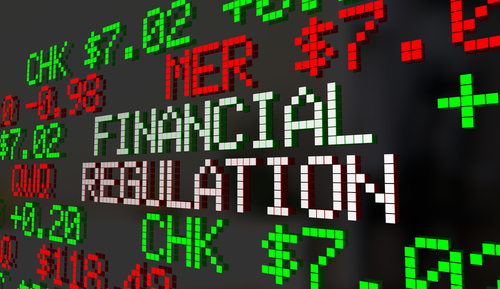Derivatives regulators continue to take actions that pull virtual currencies – also known as digital currency or cryptocurrency, the best known of which is bitcoin – into their regulatory schemes. In December, the National Futures Association (NFA), the futures industry’s self-regulatory organization, issued three Notices to Members that expand the notification and reporting requirements for futures commission merchants (FCMs), introducing brokers (IBs), commodity pool operators (CPOs) and commodity trading advisers (CTAs) trading in virtual currencies and related derivatives. In issuing these directives, the NFA cited the fact that a number of CFTC-regulated trading venues were in the process of offering derivatives on virtual currency products and stated that it was expanding the notification and reporting requirements due to the volatility in the underlying virtual currency markets.
Specifically, the NFA’s notices:
- direct each FCM for which NFA is the DSRO to immediately notify NFA if the firm decides to offer its customers or non-customers the ability to trade any virtual currency futures product. NFA also requires each FCM to report on its daily segregation reports the number of customers who traded a virtual currency futures contract (including closed out positions), the number of non-customers who traded a virtual currency futures contract (including closed out positions), and the gross open virtual currency futures positions (i.e. total open long positions, total open short positions);
- direct each IB to immediately notify NFA if it solicits or accepts any orders in virtual currency derivatives. NFA also requires each IB that solicits or accepts orders for one or more virtual currency derivatives to notify NFA by amending its annual questionnaire, by answering this question: Does your firm solicit or accept orders involving a virtual currency derivative (e.g. a bitcoin future, option or swap)? In addition, starting with the current quarter, IBs that solicit or accept orders for virtual currency derivatives will also be required to report the number of accounts they introduced that executed one or more trades in a virtual currency derivative during each calendar quarter;
- direct each CPO and CTA to immediately notify NFA if it executes a transaction involving any virtual currency (such as bitcoin) or virtual currency derivative (such as a bitcoin future, options or swap) on behalf of a pool or managed account. NFA’s Notice requires that CPOs and CTAs provide such notice by amending their annual questionnaire, to which NFA added questions that inquired, for CPOs, whether the firm operates a pool that has executed a transaction involving a virtual currency or virtual currency derivative and, for CTAs, whether the firm offers a trading program for managed account clients that have transacted in a virtual currency, or managed an account that transacted in a virtual currency derivative. In addition, beginning with the current quarter, the NFA is requiring CPOs and CTAs to report on a quarterly basis the number of their pools or managed accounts that executed at least one transaction involving a virtual currency or virtual currency derivative.





